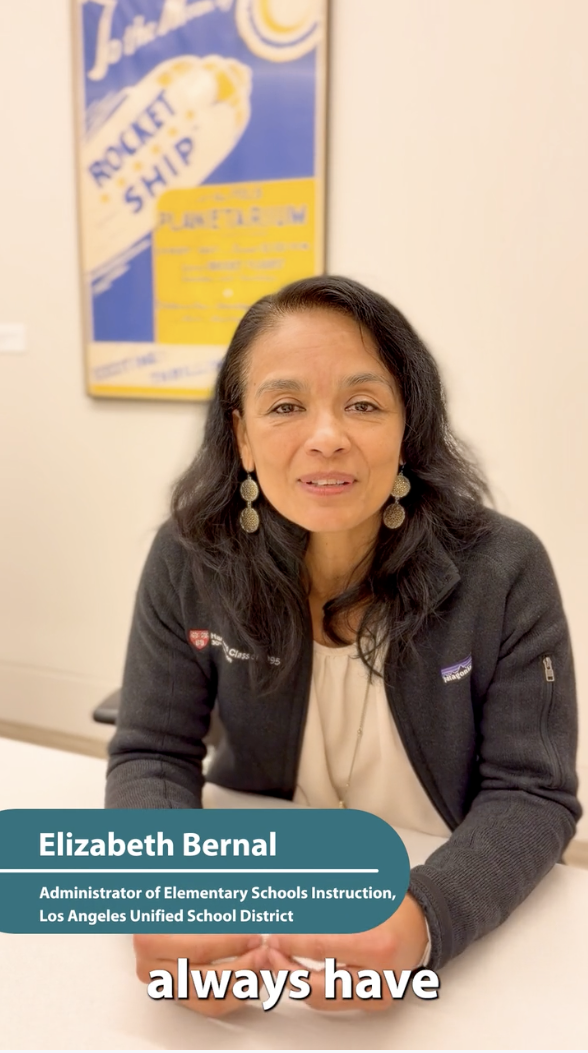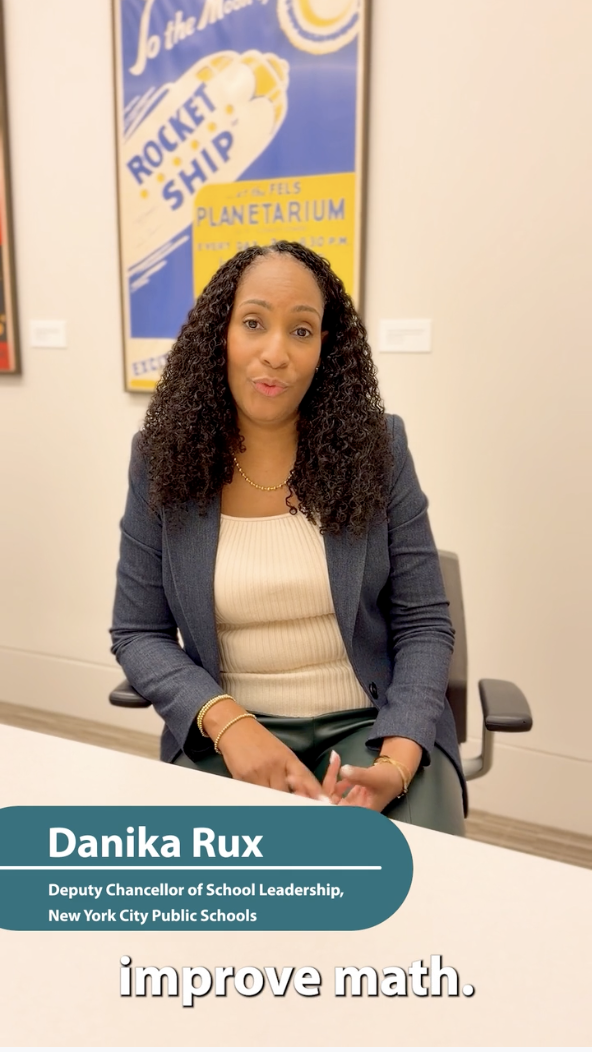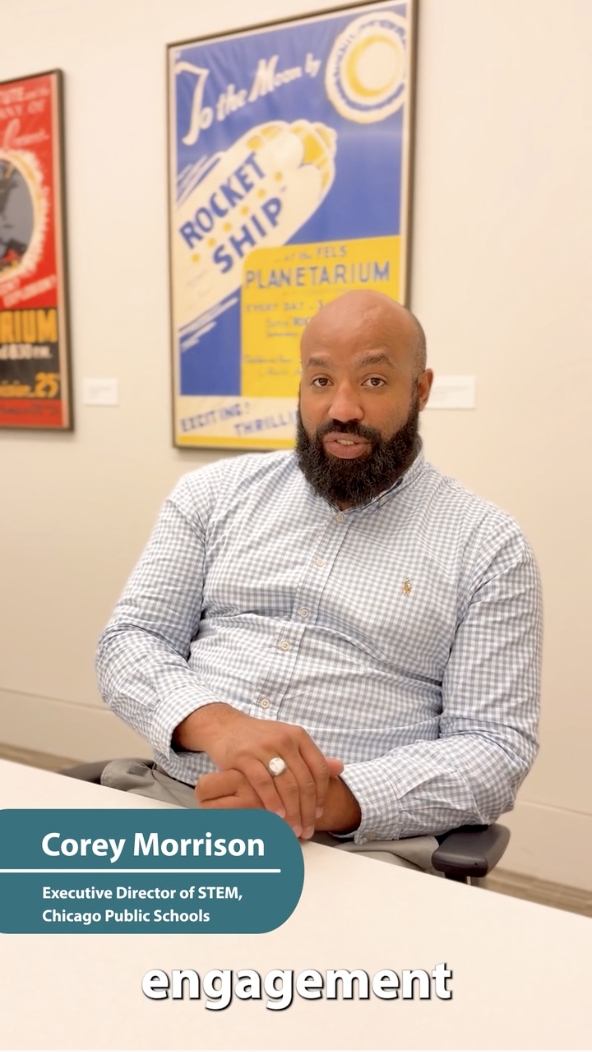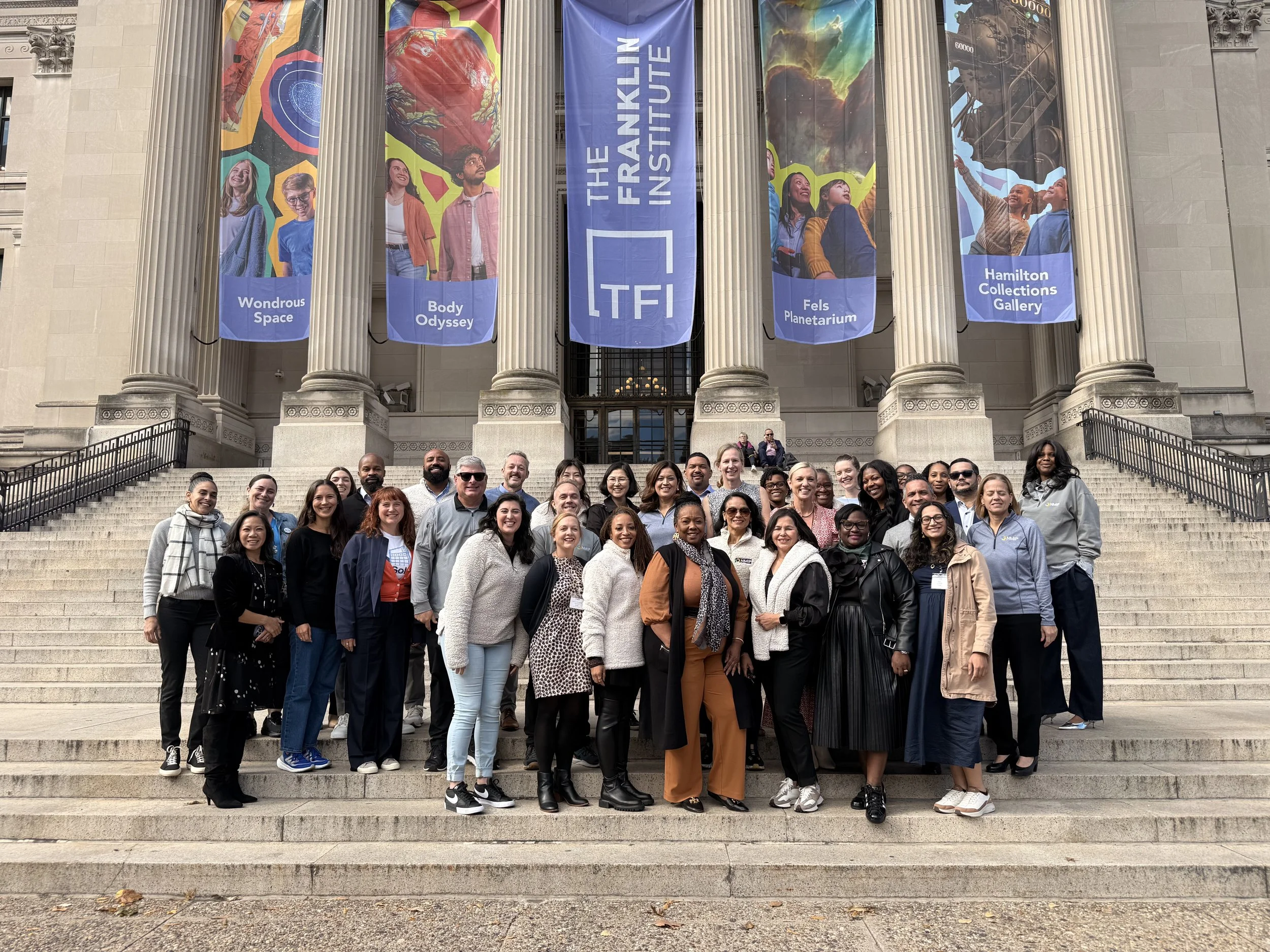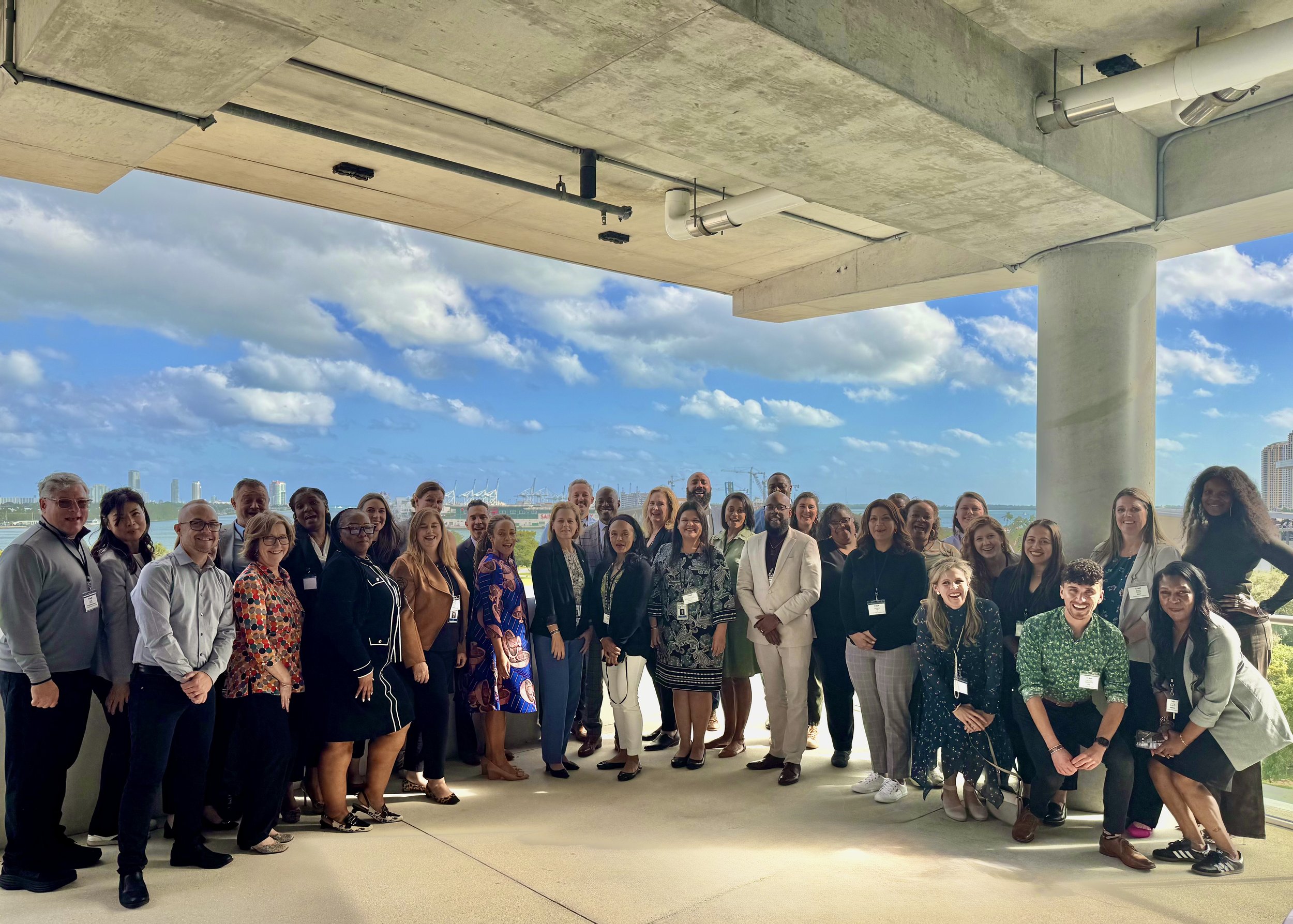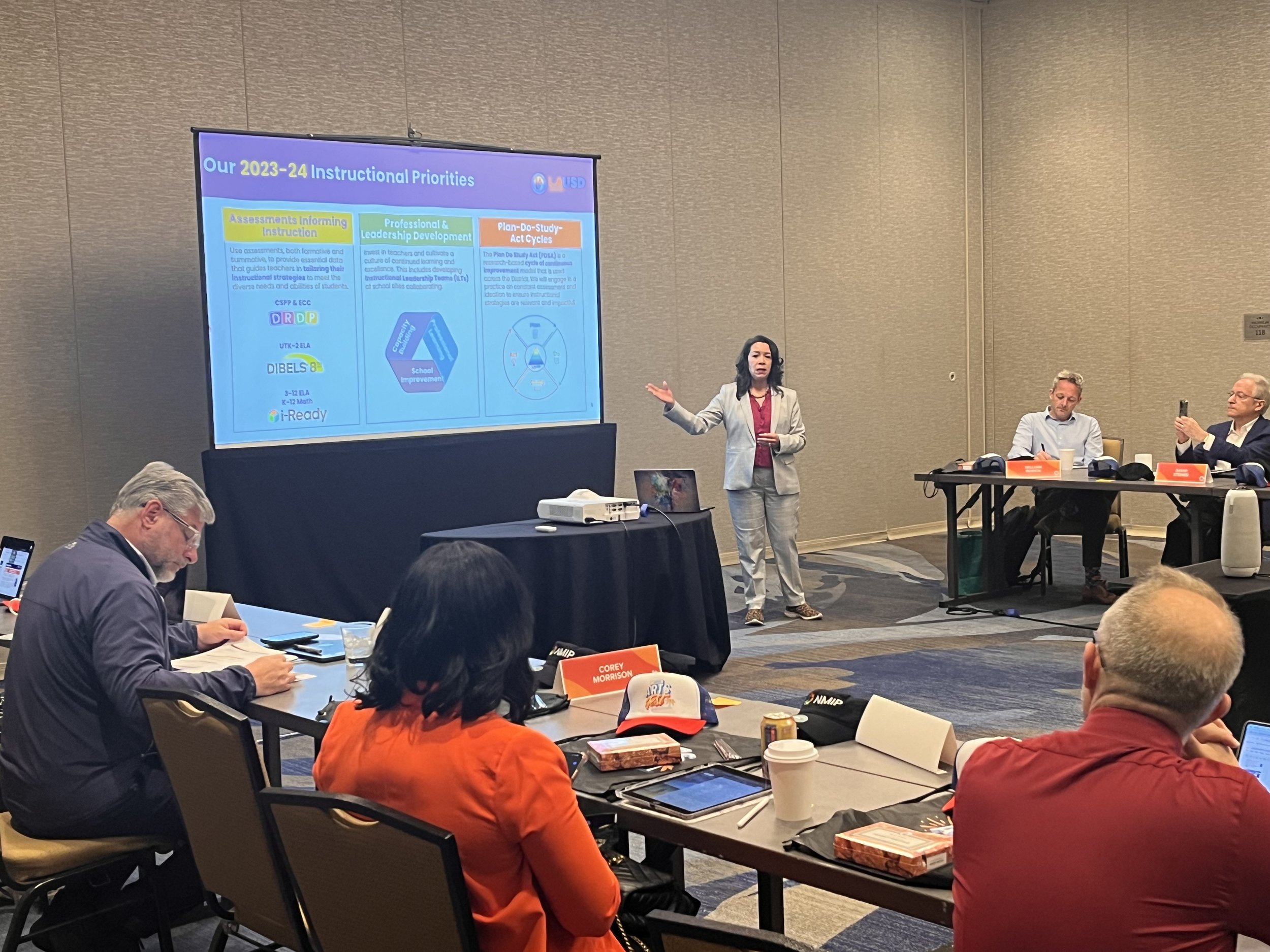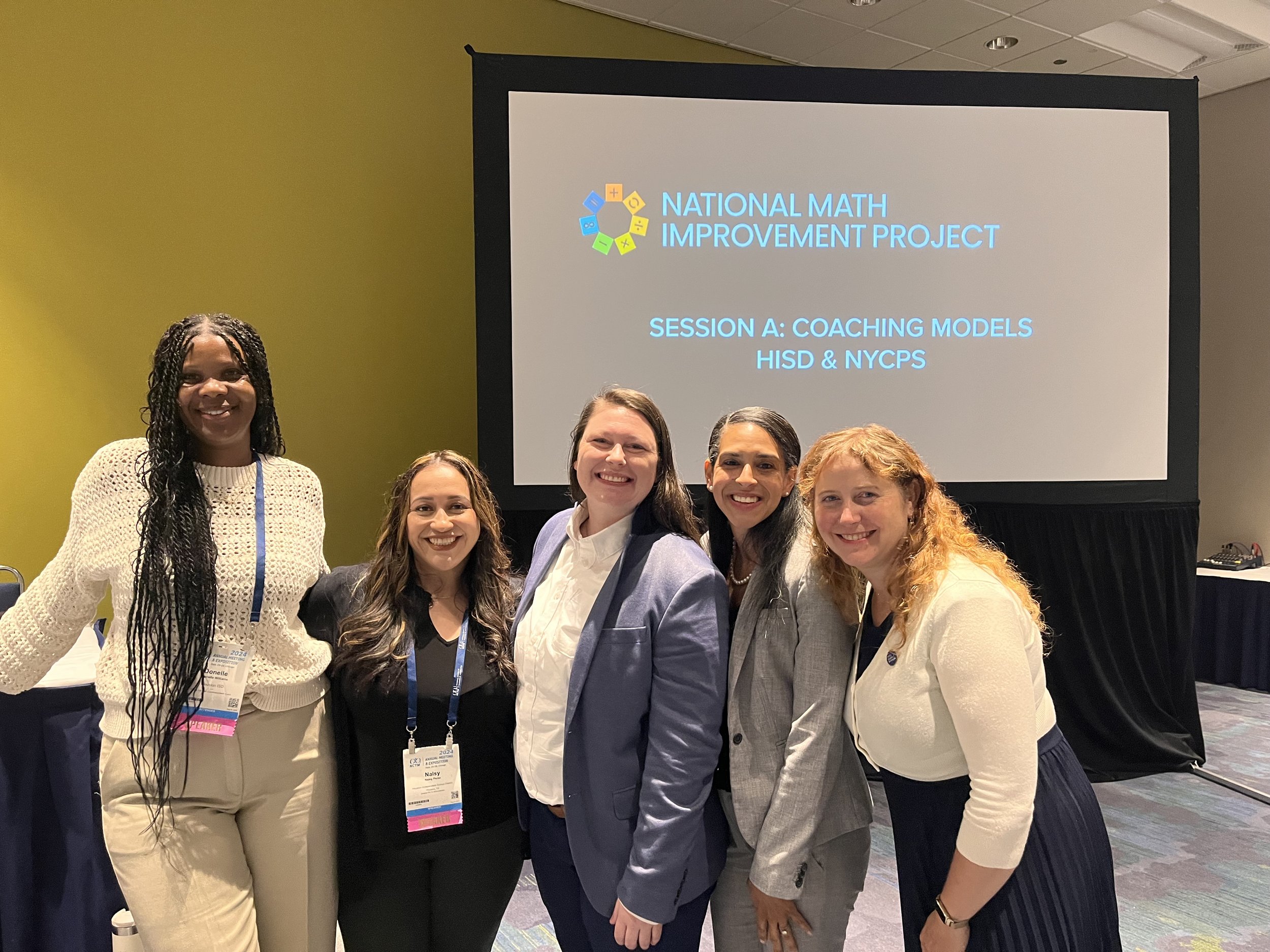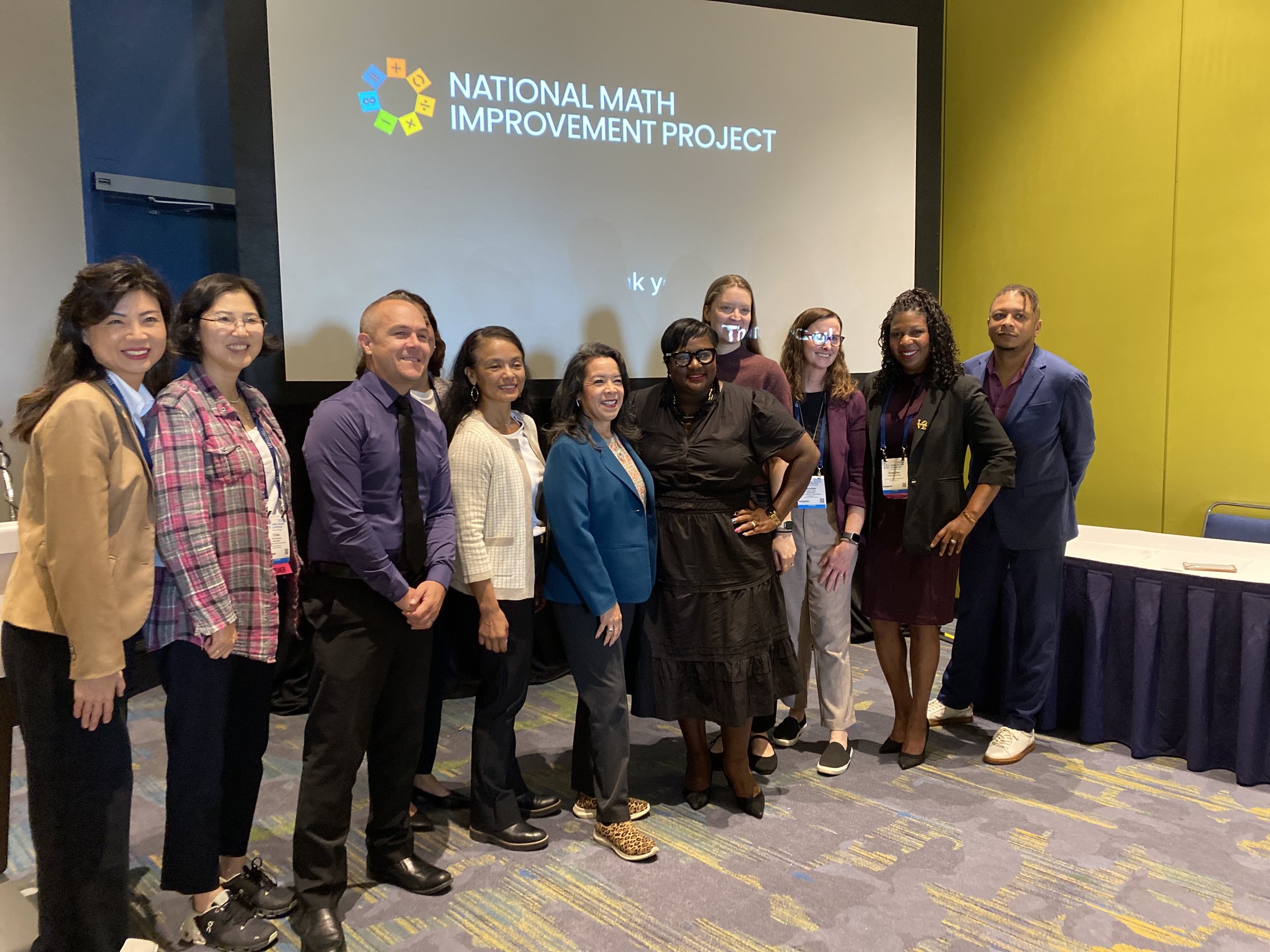The National Math Improvement Project:
Harnessing the collective knowledge of district leaders to address core challenges in math instruction together.
NMIP’s Origin
Six of the nation’s largest urban school districts—Chicago Public Schools, Houston Independent School District, Los Angeles Unified School District, Miami-Dade County Public Schools, New York City Public Schools, and the School District of Philadelphia—have come together to form the National Math Improvement Project (NMIP).
NMIP districts collectively serve nearly 2.5 million students, the majority of whom are students of color and/or students living in poverty. While each district faces its own unique, local context and dynamics, the group shares challenges rooted in the sheer size and scale of their agencies, as well as the diverse student populations they serve.
Together, academic leaders from these districts have committed to collaborate over the course of three years through a community of practice focused on (1) implementing high-quality core and supplemental instruction and materials in math; (2) increasing educator capacity; and (3) building math mindset in students, educators, and society.
This project aims to elevate best practices and shared learnings in support of academic outcomes, educator capacity, and math mindsets.
Core Challenges & Objectives
NMIP convened informally for the first time in December 2022 in response to declining national test scores in math for students in grades 4 and 8. Throughout the early planning phase of the project, district leaders participated in a series of in-person and virtual workshops to identify their shared challenges related to teaching math.
From 2023-2026, these leaders will join district peers, math experts, and practitioners for three annual convenings to address the five core challenges in math education the group has identified:
Districts
Hear from NMIP District Leaders
What do you see as the value add of the National Math Improvement Project?
What’s a favorite memory or experience from the National Math Improvement Project?
What do you hope to start or continue doing to improve math outcomes for students?
What is something you’ve learned from your peer districts this year?
In the News
-
How 3 districts are turning algebra from ‘gatekeeper’ to ‘gateway’: K-12 Dive — February 26, 2025
-
Read a reflection on a chance meeting and the birth of the National Math Improvement Project from NMIP Lead & Whiteboard Advisors Co-founder Anna Edwards.
-
Most Schools Can’t Define “High-Quality” Math Materials: Gallup’s survey of education leaders revealed a major barrier to improving instruction and student outcomes in math. Hillary Knudson and Thomas Rodgers share what you need to know.
Events
-
NCTM
The National Council for Teachers of Mathematics Annual Meeting
September 26, 2024, in Chicago, IL
NMIP district leaders presented three sessions about their efforts to improve math instruction and support:
1. Access to Algebra (CPS & M-DCPS)
2. Coaching Models (HISD & NYCPS)
3. Scaling HQIM Implementation (LAUSD & SDP)
View the presentation slides with the links above!
-
CGCS
Fall Conference | October 23, 2025, in Philadelphia, PA
NMIP’s session featured leaders from every district sharing about: Scaling HQIM (NYCPS, SDP); Algebra 1 (CPS, LAUSD); Leadership PL (HISD); and Pacing (M-DCPS). Watch a recording of the session from CGCS’s Instructional Spotlight on Nov. 5th.
Fall Conference | October 18, 2024, in Dallas, TX
NMIP’s session featured district leaders sharing about the community of practice and efforts underway to improve math instruction and outcomes.
Curriculum, Research, and Instructional Leaders Conference | July 9, 2025, in Detroit, MI
NMIP leaders presented two sessions:
-
AASA Roundtable
March 6, 2025, in New Orleans, LA
Four NMIP district leaders presented a roundtable at AASA’s conference to a standing-room-only crowd. See handout here.









